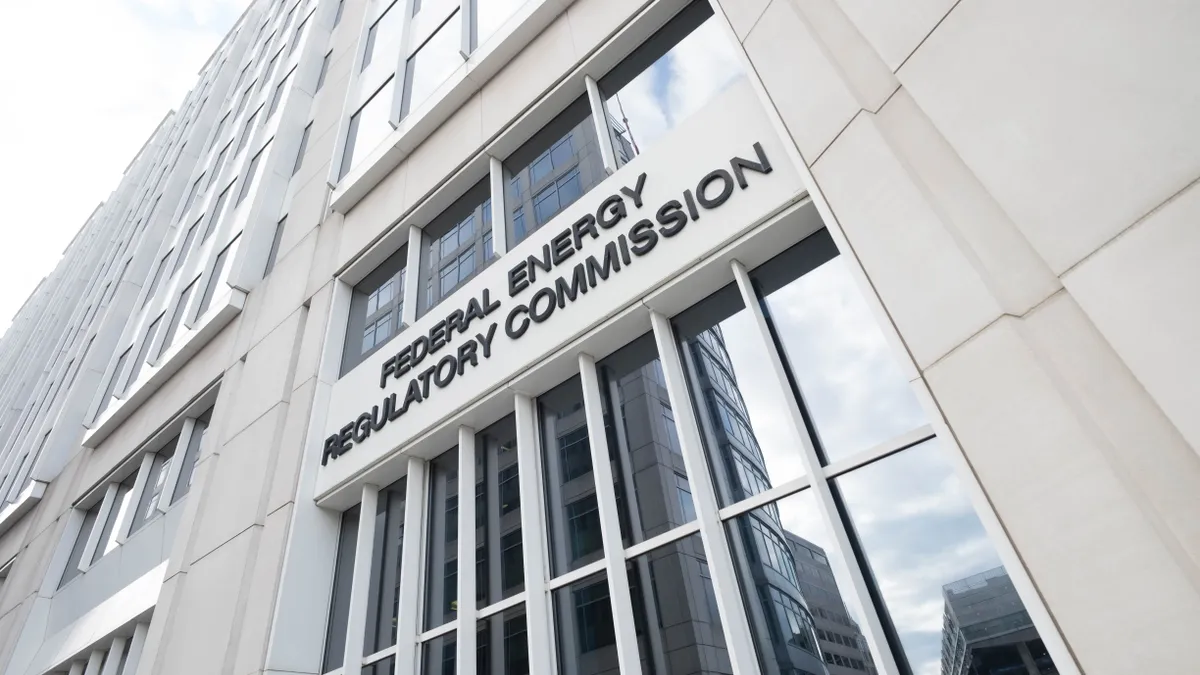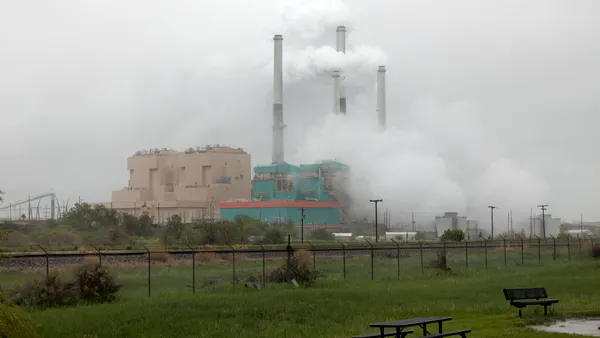Dive Brief:
-
Stakeholders commenting on the Federal Energy Regulatory Commission's proposed carbon pricing policy statement were divided on what role such a policy should play in the clean energy transition.
-
Competitive power trade association groups, the Electric Power Supply Association (EPSA) and the Natural Gas Supply Association (NGSA), argued that carbon pricing, or other market-based policies like it, are more effective at curbing carbon emissions economically compared to other state policies, in comments filed Monday. Meanwhile, states and investor-owned utilities (IOUs) cautioned FERC against preferring carbon pricing over other policy mechanisms.
-
The comments follow FERC's determination that it has the authority to implement a carbon price, and indicates states' wariness of further commission interference in their resource planning.
Dive Insight:
Some merchant generators believe that carbon pricing or a similar policy will heal some of the divisions that have grown between FERC and the states over the past few years. States, frustrated with federal policies they see as interfering with their resource planning and climate policies, have threatened in some instances to pull out of the capacity market altogether.
"There is definitely a tension," said Jessica Bell, a clean energy attorney at the State Energy and Environmental Impact Center at New York University's School of Law.
"Some groups potentially have this hope that if FERC gets proposals to implement a state determined carbon price, that will make … the other state energy policies go away."
Competitive suppliers Vistra and NRG Energy encouraged the commission to consider any sort of market-based approach, such as a "well designed" clean energy standard (CES), under the broader umbrella of carbon pricing proposals.
"Between the options of carbon pricing and CES, Vistra believes carbon pricing is a more effective way to harmonize wholesale electricity markets with state greenhouse gas policies," Vistra wrote. "However, in recognition of the significant support expressed for CES, Vistra supports state and federal discussions addressing both CES and carbon pricing to understand how their uses in wholesale markets differ from a price signal, regulatory, and jurisdictional perspective."
EPSA recently published a study on the economic benefits of market-based approaches to state carbon reduction policy within the PJM Interconnection, versus what it characterizes as a "patchwork" of state clean energy policies, which it included in its comments.
NGSA suggests that carbon pricing is evidence that FERC's controversial minimum offer price rule expansion does not signal the end of state freedoms when it comes to clean energy policy.
"Given the Commission's actions over the past year that appropriately took steps to curb market distortions in regional organized markets due to state subsidies, this policy affirms that states still do indeed have viable market-based options that can be successfully pursued," the group wrote.
But states and IOUs cautioned the commission against being too prescriptive in its final policy statement, as well as in future rulings. Despite the emphasis on state policies in the comments, no FERC-regulated state was included in FERC's September carbon pricing conference. Former FERC Chair Neil Chatterjee later said that omission may have been a "mistake."
Ten attorneys general plus the District of Columbia issued joint comments urging the commission to avoid overstepping its jurisdiction by determining whether a carbon price is superior to other state policies, or by declaring "general positions on the design elements of state programs that are plainly within states' jurisdiction," such as transparency, how the price is determined, and how a policy addresses leakage.
Investor-owned utilities, such as Eversource, Exelon, and trade group Edison Electric Institute, similarly asked the commission to avoid any proposal that "undermine[s]" state clean energy policies.
Exelon warned that without other tools besides carbon pricing, more nascent technologies such as offshore wind and advanced nuclear reactors might not get the support they need. Such technologies "may require financial support beyond carbon pricing to be viable, at least until these technologies mature further," the utility, which has a heavy nuclear fleet, wrote in its comments.















